Choreo
UI/UX
iOS DEVELOPMENT
DATA ANALYSIS
PROTOTYPING
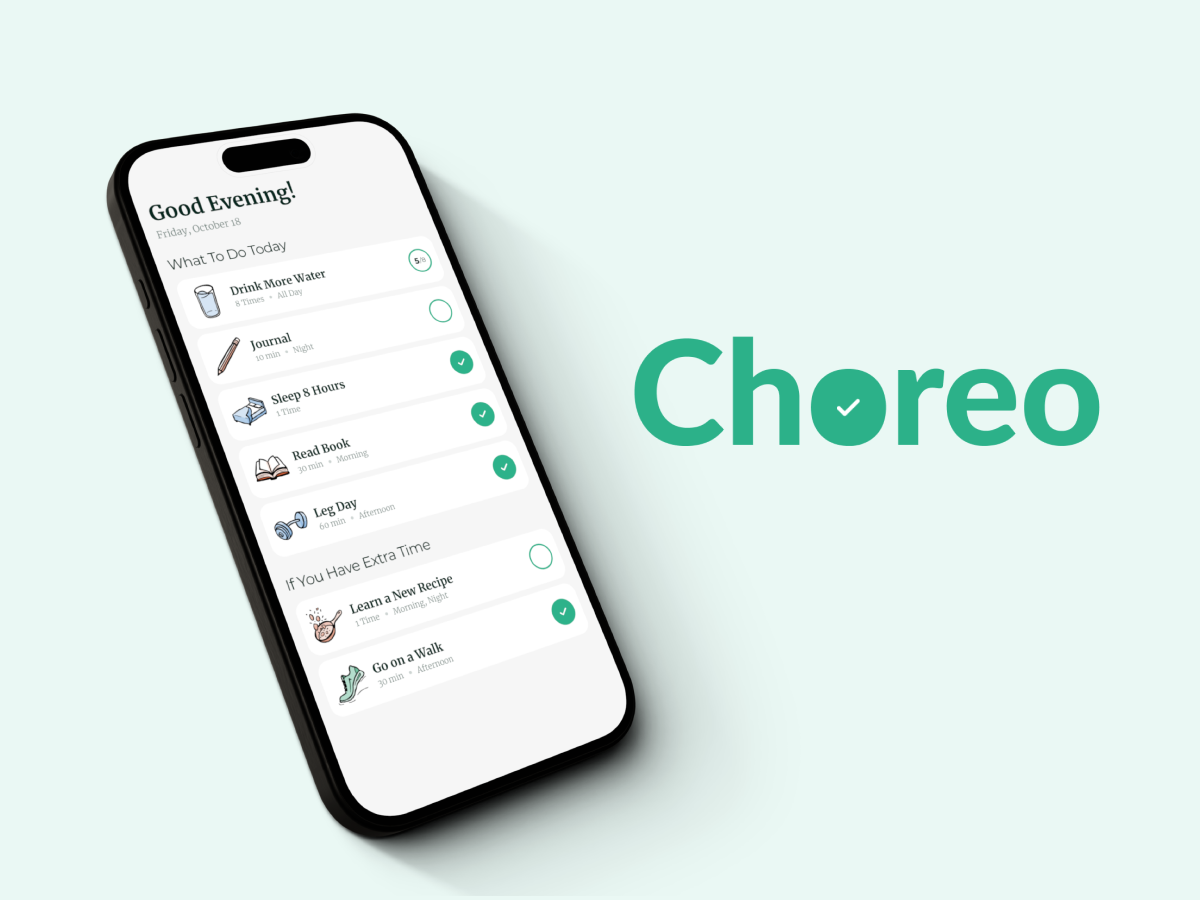
What is Choreo?
It's a habit-building app. Set goals and habits you want to complete on a week by week basis, and
let the app take care of the rest! It's designed on Figma and developed in Swift.
The second version is already released, and there's many more features currently in development.
This may be my first app development project, but it's also an app I use for myself, so I've got to make it worth downloading!
01
Needfinding
Everyone has a New Year's Resolution. Everyone wants to better themselves. Everyone wants to break bad behaviors and develop new ones.
And yet, nearly everyone struggles to get that done. I was the same way.
There are many apps trying to solve this very issue, and some of them work quite well for people. Yet, they all share many of the same
problems. I interviewed 10 of these users and discovered the following need:
People who struggle with building persistent habits need an effective way to develop a personalized plan that makes consistency more
manageable.
02
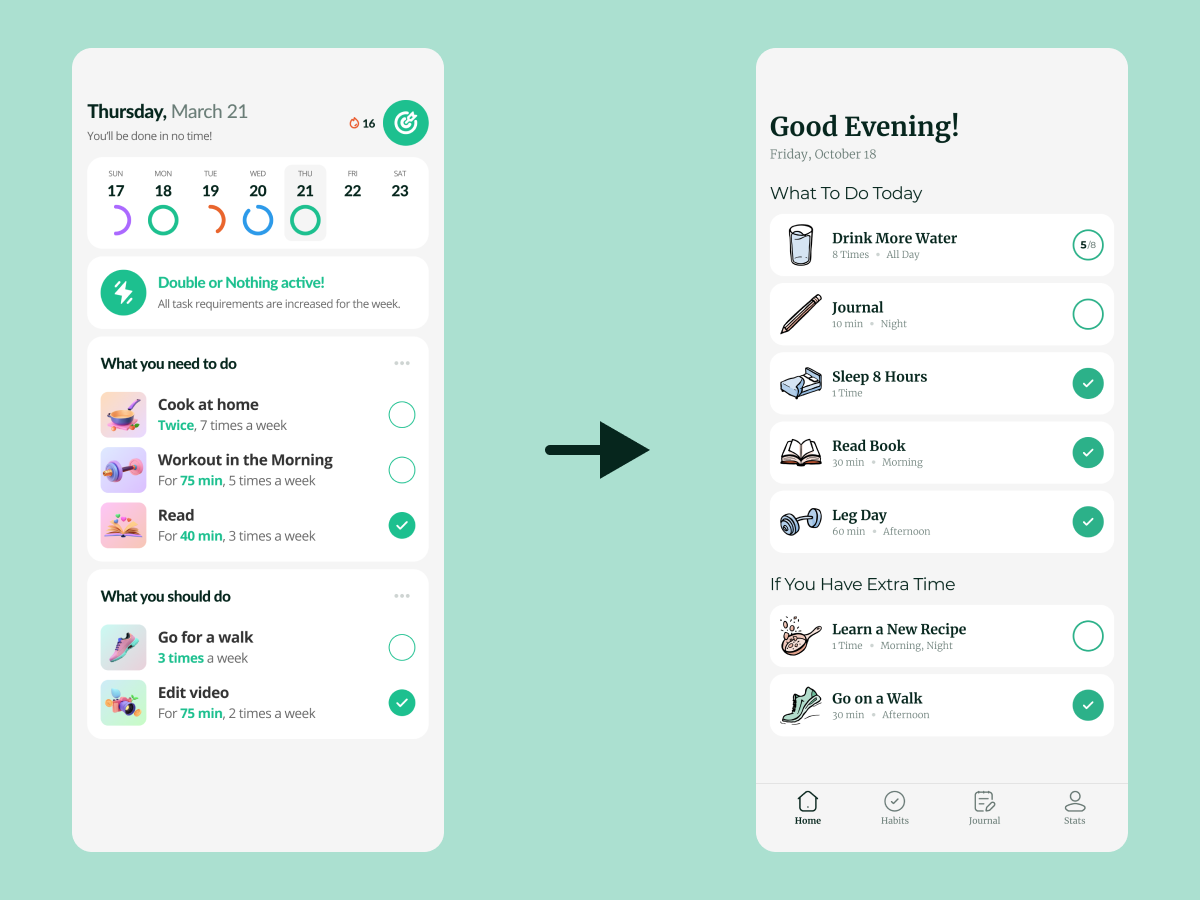
Learning iOS Development
I used this project as an opportunity to teach myself iOS development. I released a very basic Version 1.0 on the App Store, and I
conducted some user testing to learn more about the development process.
It wasn't perfect— arguably, not even good— but it was the best way for me to learn. With a solid foundation in Swift, I was now
able to start fresh and build the app I set out to create.
03
Design Principles
I developed a set of design principles to drive my work. They were based on insights, development experience, and feedback from v1:
- Design for habits top-down: Breaking down big habits (later called “goals”) into smaller chunks is more effective.
- Make it obvious: Anyone should be able to pick up the app and use it intuitively.
- Make it satisfying: Users should want to come back everyday, not just out of drive.
- Develop robust code: Enables more frequent updates with additional features and interactions.
- User analytics will drive future updates post-release: Conducting interviews on my own is limiting. To make better improvement, I need to gather insights from a wide range of users.
04
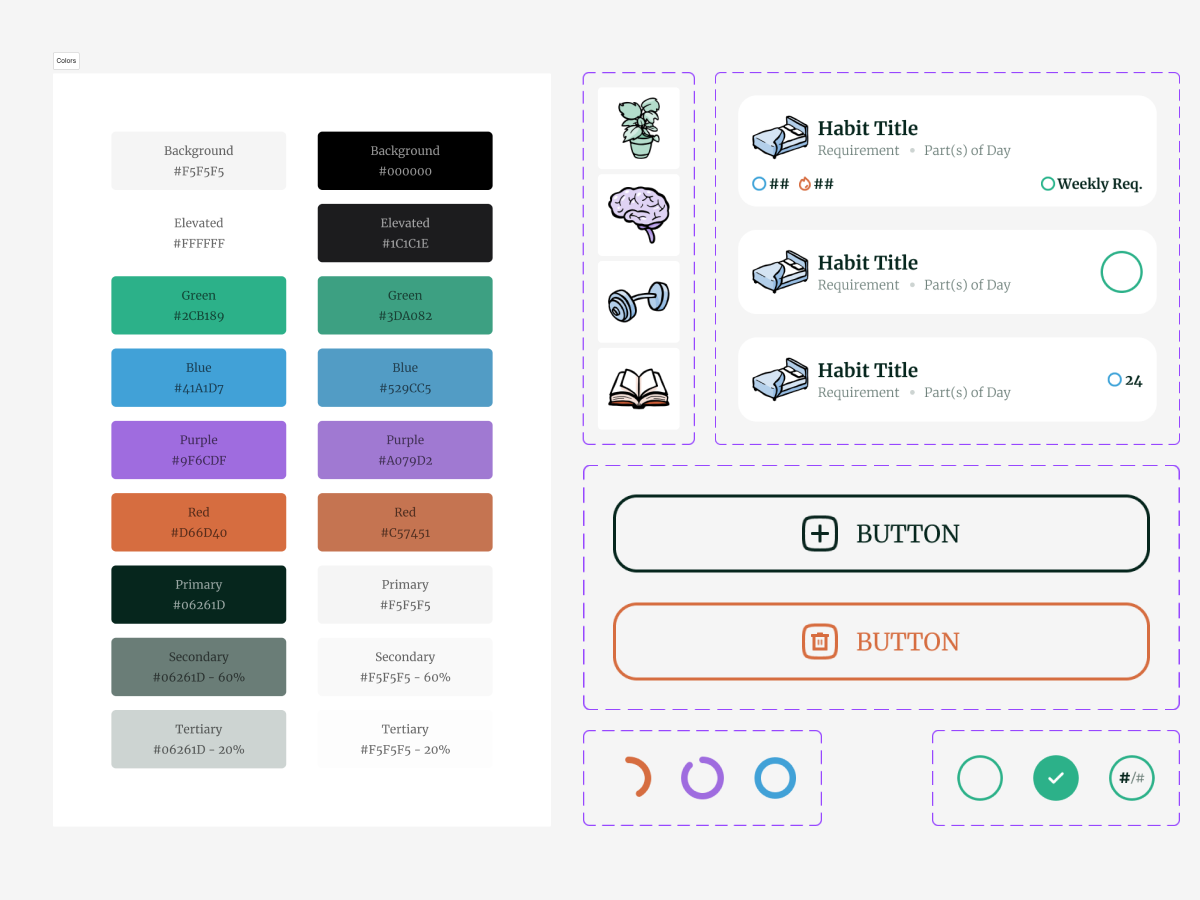
Design System
By constraining myself to a consistent theme, I actually made my work more effective. I didn't have to think so much about the visuals,
and instead, I could focus on the UX of new additions. It also made development efficient, since I could recycle more components.
I went with a “notebook” theme, since it gives a familiar sense of checking something off a list and allows for creative freedom
on my end.
05
Prototyping & Development
I designed a complete prototype of the app with every screen and possible state. Once I was satisfied, I developed the app thoroughly, with evolution in mind. After many rounds of feedback and bug-fixing, I finally released the app officially to the public.
06
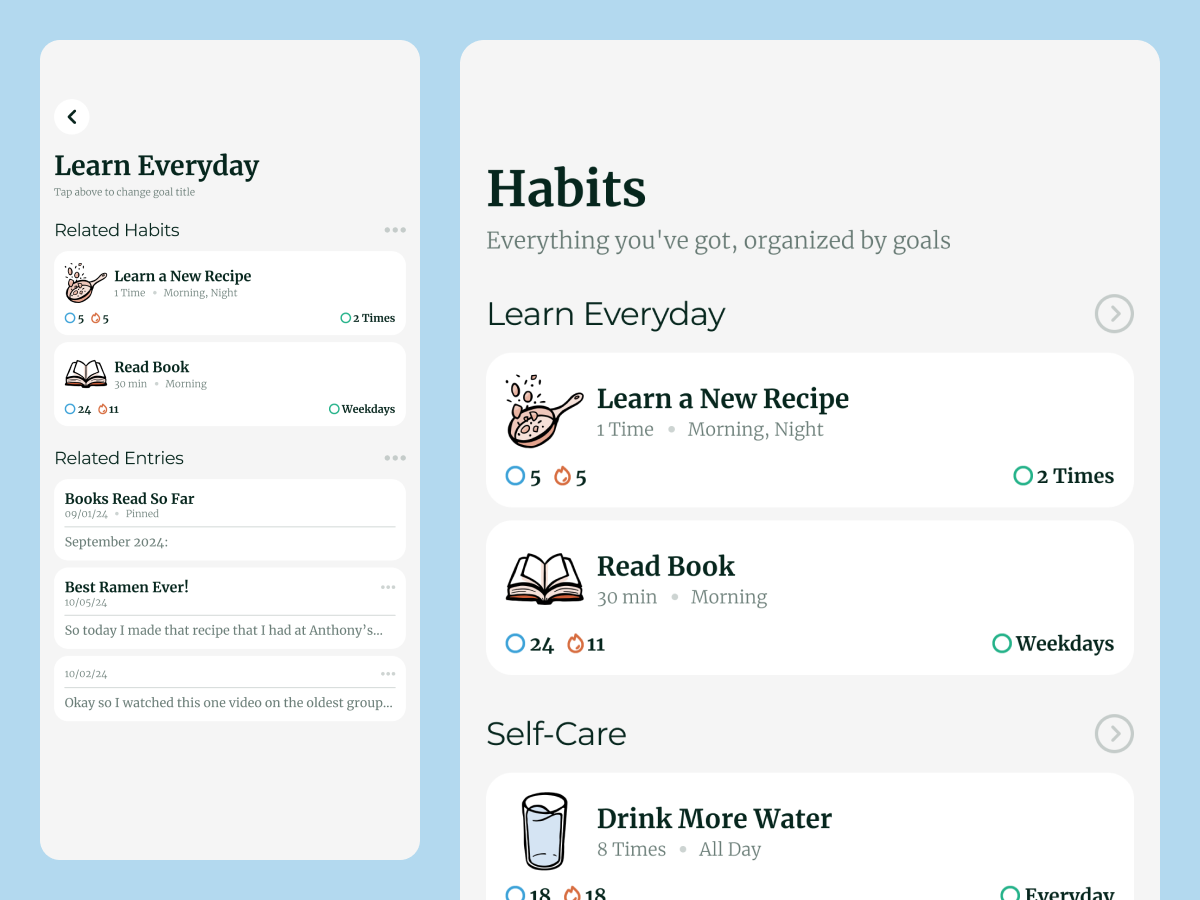
Official Release: Big Goals
Inspired by Atomic Habits and previous versions of Choreo, the hierarchy streamlines your self-improvement wishes into the most
effective habit-building methods.
This philosophy of breaking down bigger goals into smaller habits allows you to improve little by little everyday. Before you know it,
your behavior will have shifted completely.
Goals organize your small habits and journal entries into a single, coherent vision.
07
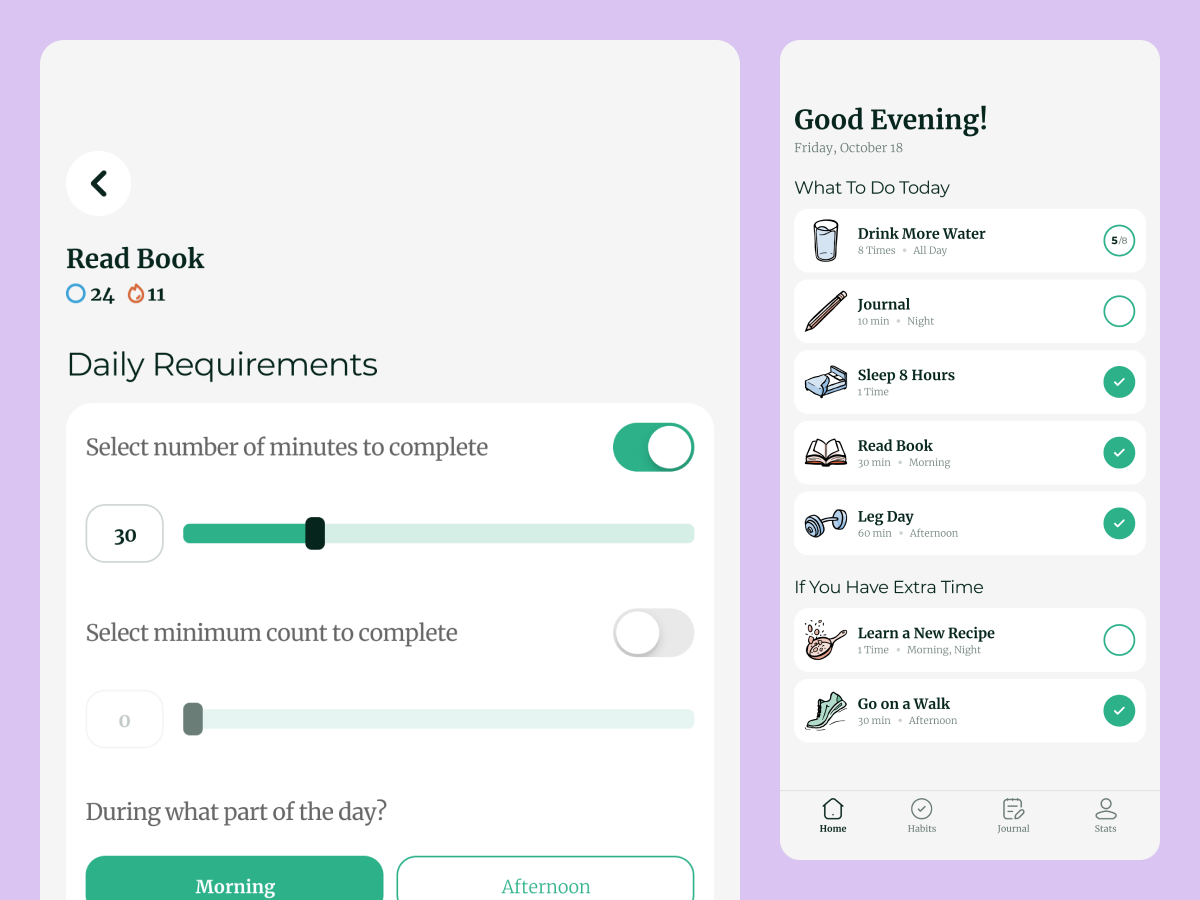
Official Release: Small Habits
Instead of telling you everything at once, the app only cares about what needs to get done today, simplifying the habit-building process.
By just focusing on checking off small habits everyday, you'll be able to stay even more productive.
Each habit has a requirement to complete each day alongside a weekly schedule and expectation. By completing the minimum requirements,
you'll get closer and closer to that overarching goal every day.
08
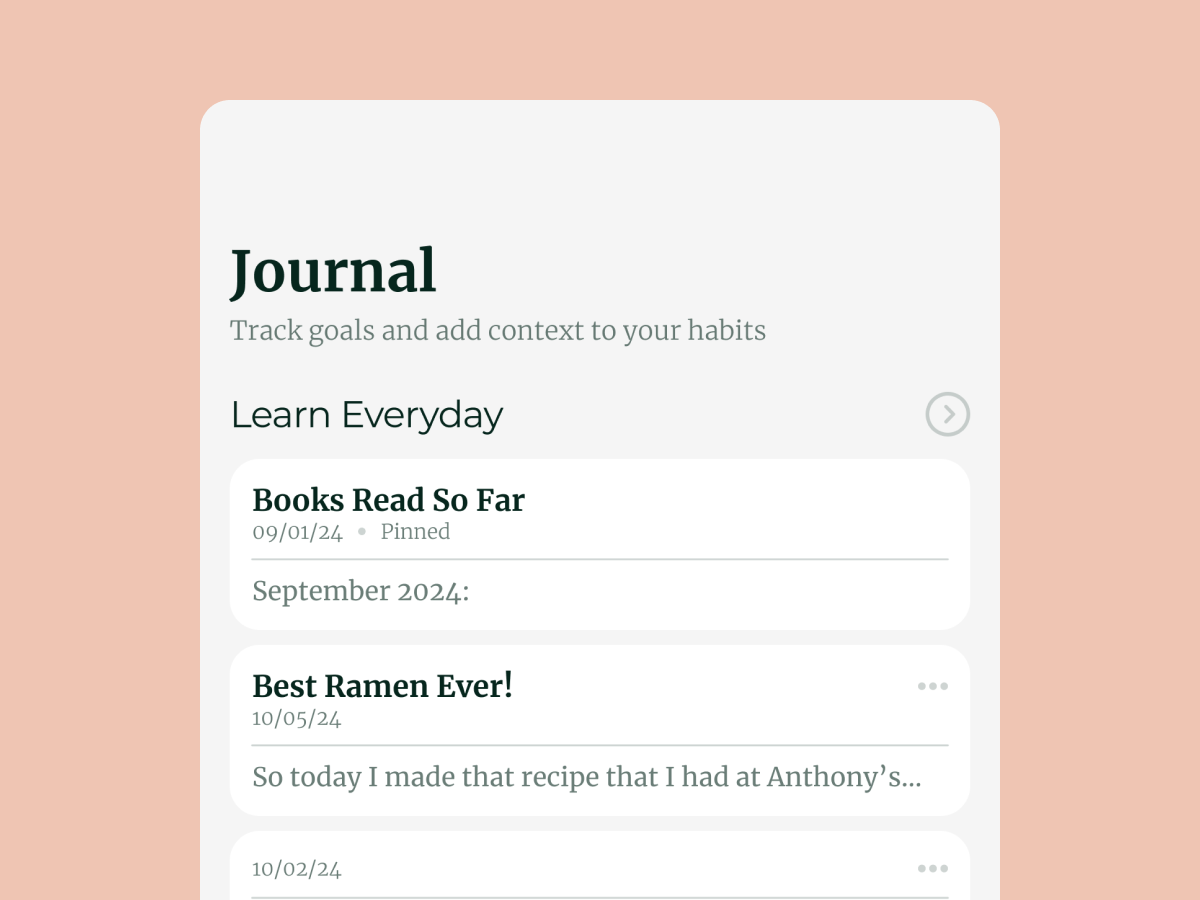
Official Release: Taking Notes
I included a journal in the app to add context to both habits and goals. You can track your progress over time by going through all
journal entries or adding notes to check back on later.
Maybe you want to take note of your exercise goals for the end of the year. Or you've got a list of books you want to read that'll help
with your learning. In the journal tab, you can keep it all in one place and access them easily in context to their associated goals.
09
Official Release: Track Your Progress
Stats aren't just good for sports. They can also provide insight into how well you've been committing to building habits and encourage you not to break any streaks. With widgets and notifications coming soon after the new release, you'll be informed and encouraged on and off the app.
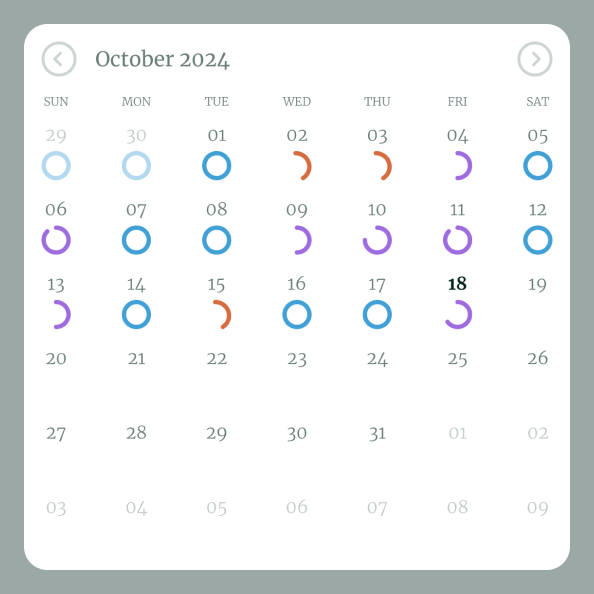
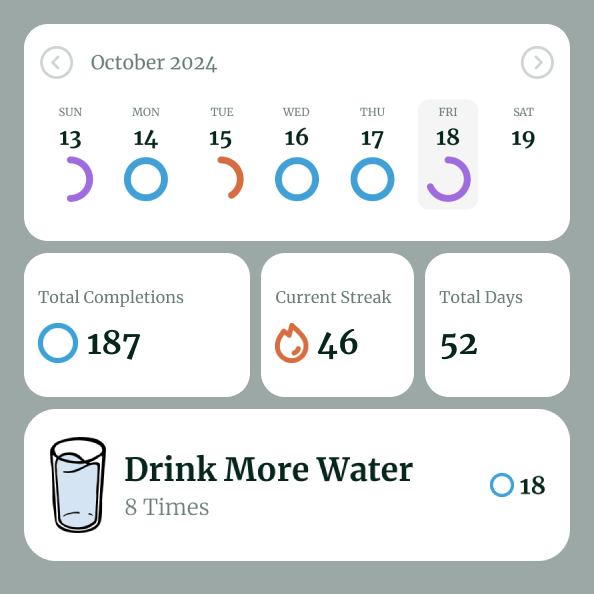
10
Data-Driven Updates
Since release, I've been using data to improve the app and prioritize new features. All of the following changes are a direct result of user analytics:
- New onboarding flow: First-habit creation went up +51%, while first-habit completion increased +58%. Meanwhile, first-goal creation went up +120%.
- Improved goal page: Percentage of habits with a goal increased +46%, and first-entry creation increased +107%.
- Improved habit customization: First-habit creation increased another +36%, and the average number of habits per user increased +53%.
- Improved journal entries: First-journal creation went up +20%, while the average number of entries per user increased 44%.
11
User-Driven Features
As app usage has grown, I've also been able to make improvements based on direct feedback and requests from users:
- Notifications: As something I wanted to add eventually, I reprioritized the change after multiple requests.
- Past-Habit Editing: A few users complained about accidentally missing habits that they completed, so I added a system for users to make short-term edits.
12
Tools & Skills Used
For Design: Figma, Adobe Illustrator, Procreate
For Development: SwiftUI, XCode, Firebase, Testflight
Skills Involved: UI/UX Design, iOS Development, Design Thinking, Wireframing, User Testing, Data Analysis, Product Management

